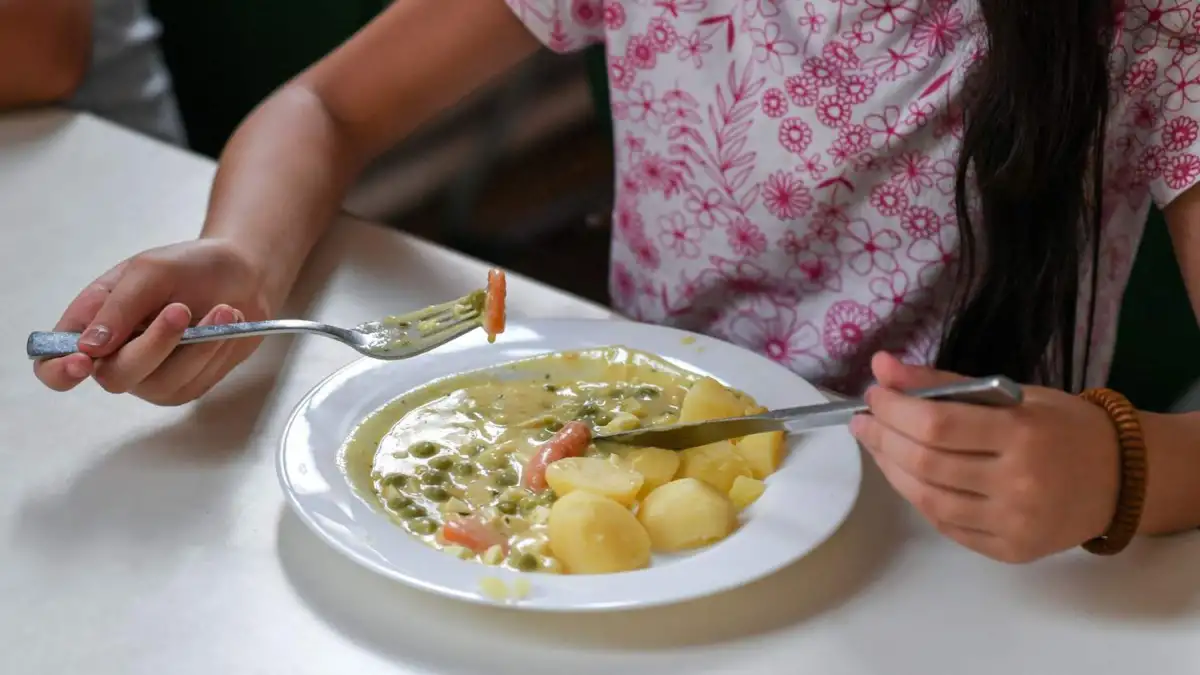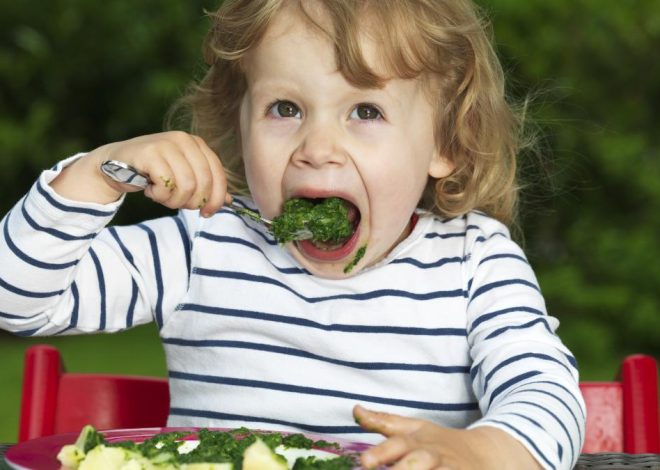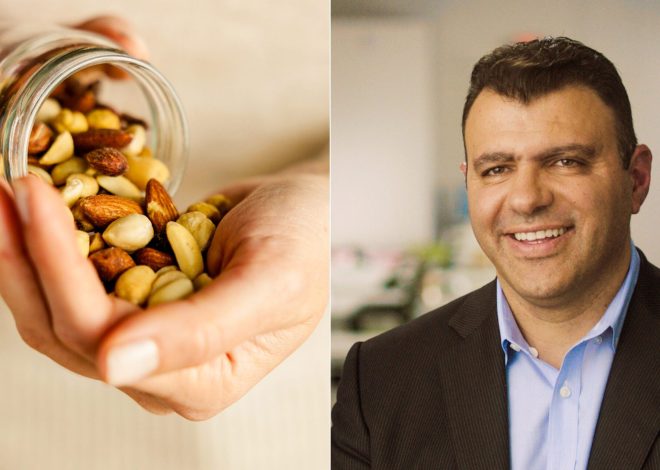
Healthy eating for children: Interview with a nutritionist
Ms. Castens, how important is eating together for a family?
Julia Castens: In contrast to the past, many families hardly eat meals together anymore. The parents have early or late shifts, the children have soccer training, judo or horse riding – so for many people it makes sense to sit alone in the children’s room or in front of the television with a quick meal. However, eating together can easily promote family bonds and cohesion. You report on the day, enjoy the meal in peace, consciously perceive the food as a pleasure.
How does nutrition affect child development?
Children need sufficient vitamins and minerals because they are still growing. A balanced diet is also very important for concentration, immune defense and mental and physical development. Unfortunately, a one-sided diet that mainly consists of sugary drinks and sweets often leads to nutritional deficiencies and obesity.
More and more children don’t know where food comes from. How can parents impart the necessary knowledge to their offspring?
We live differently than before and mainly buy our food in the supermarket. The grandparents usually still know how cheese is made or how bread is baked and how to prepare sauerkraut, cabbage or beans themselves. Today we hardly have the time or inclination for the complex processing of food, and the large selection of quickly available food in the supermarket makes us happy to grab it. To give children the necessary knowledge, a trip to a farm is a good idea, where you can often even help out. A walk through the weekly market with a few explanations about the origin of the food is also a nice option. There are also more and more child-friendly programs on television that tell us something about our food.

Julia Castens works as a nutritionist in the Weyhe, Stuhr and Syke area.
Children are often picky about their food choices. How can parents still ensure a healthy and varied diet?
We want our children to have a balanced diet and are therefore concerned when they refuse healthy food. Here it helps to approach the topic in a playful way and not to set any bans. Many children refuse fruits and vegetables when they are presented with them. Hide it in pureed form more often: most children like a cool raspberry or strawberry smoothie, and a red pasta sauce made from pureed vegetables is also popular.
What can parents do if children don’t want to eat anything?
First of all: stay calm and take the pressure off. Let your child have a say and try new foods every now and then. It takes many times before we develop a new taste for good at a young age. No child should be forced to finish their plate. Instead, set a good example and eat good foods in a relaxed manner and with enjoyment. Children learn a lot from us.
How can children be introduced to unfamiliar foods?
The same applies here: demonstrate and offer again and again. Children often reject new things. When they see unfamiliar foods repeatedly appearing on the dinner table, their inhibitions drop.
In stressful everyday life, food often has to be prepared quickly. How can you still have a healthy diet?
Good planning is the be-all and end-all. Write a shopping list and get the most important basics when doing your weekly shopping. Always have the healthy things in stock and cook larger quantities for the following day. More and more frozen meals are made from wholesome and healthy ingredients. It is important to look at the list of ingredients here.
How can children help prepare meals?
Let the children help. Even if the kitchen looks like a battlefield, children are more likely to eat what they have prepared themselves. Bake bread together with a simple bread dough, cut sweet fruit into strips together for the game, make scrambled eggs together.
Sweets and sugar are often a topic of conflict. How much sweets is OK for children?
People love sweets, it has been in our DNA since the Stone Age. Breast milk is the first thing we taste and it is sweet. Nowadays, unfortunately, a large proportion of the foods on offer have added sugar – far too much for our bodies and especially for small children’s bodies. Only offer sweet drinks like lemonade on special occasions, instead offering water or tea. You can save a lot of liquid sugar here. To measure sweets, simply note the size of a child’s hand as a rough rule of thumb: a few wine gums, a few pieces of chocolate – whatever fits well in a child’s hand is ok as a daily ration.
What snacks can be used instead of sweets in between?
Depending on the children’s preferences, you can offer a colorful and varied selection: fruit, vegetable sticks, nuts, almonds, crackers, healthy muesli bars, rice cakes.
The federal government is discussing advertising restrictions for products with too much sugar, fat and salt at certain times on television and online as well as on restricted areas around daycare centers and schools. What do you think of it?
What good is a ban mile when bratwurst and fries are on the menu in the school cafeteria? Of course, it makes sense if unhealthy foods are not constantly in sight, but what is much more important is a healthy, varied and tasty food selection in daycare centers and schools. I also think it is extremely important that the topic of nutrition is given greater importance in lessons. Only if we educate our children and young people about what bad food does to their bodies can we change our mindset.
How do smartphones and other media at the table affect eating behavior? And how can this distraction be avoided?
Due to the distraction of smartphones or television, we hardly notice what we eat and how much we eat. We concentrate on the media entertainment and the food takes place on the side. When we eat together with family or friends, we enjoy the meals more and can also notice in good time when we are full.
The interview was conducted by Eike Wienbarg.
To home page

Ethel Purdy – Medical Blogger & Pharmacist
Bridging the world of wellness and science, Ethel Purdy is a professional voice in healthcare with a passion for sharing knowledge. At 36, she stands at the confluence of medical expertise and the written word, holding a pharmacy degree acquired under the rigorous education systems of Germany and Estonia.
Her pursuit of medicine was fueled by a desire to understand the intricacies of human health and to contribute to the community’s understanding of it. Transitioning seamlessly into the realm of blogging, Ethel has found a platform to demystify complex medical concepts for the everyday reader.
Ethel’s commitment to the world of medicine extends beyond her professional life into a personal commitment to health and wellness. Her hobbies reflect this dedication, often involving research on the latest medical advances, participating in wellness communities, and exploring the vast and varied dimensions of health.
Join Ethel as she distills her pharmaceutical knowledge into accessible wisdom, fostering an environment where science meets lifestyle and everyone is invited to learn. Whether you’re looking for insights into the latest health trends or trustworthy medical advice, Ethel’s blog is your gateway to the nexus of healthcare and daily living.



